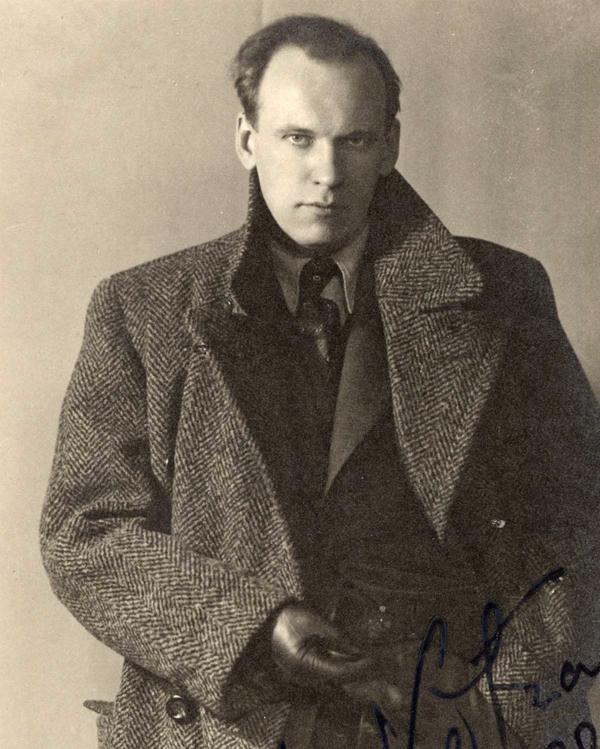Mariss Vētra
He was born Morics Blumbergs, the son of well-off farmers. The family must have been of German descent (his name seems very much like a Latvianized "Moritz Blumberg"), and as soon as of legal age, Morics urged his entire family to choose a "truly Latvian" name instead, which they did in 1922: so they all became Vētra, and Morics became Mariss. Already in 1919/20, he had fought the Latvian Independence War in the Latvian army, and was wounded. After being demobilized, he was a clerk in the railway administration for a few months, then he decided to study voice. While still a student, he became one of the founders of the opera theater in Liepāja, and sang Gounod's Faust in the opening performance on September 22nd, 1922. He stayed in Liepāja for half a year, singing Lenskij, Alfredo, Duca and José. In April of 1923, he got a contract in Riga. In the next one-and-a-half years, he sang José again, Cavaradossi, Prince, Sinodal and Rodolfo, among others. He gave many performances, going back and forth between Riga and Liepāja – and overstrained his voice in a way that wouuld cause him troubles for the rest of his career. In 1924, he went to Italy for two years to restudy. Back to Latvia, he was calling the challenge: Lohengrin, Tannhäuser, Werther, Otello! In 1928, he sang one single evening at the Vienna State Opera (as José), and got a contract in Frankfurt, where he stayed for two years, having to cut his four-year contract short because he was drafted into the Latvian army to serve a few missing months. During military service, he got the permission to sing Lenskij at the Riga opera, and he was a disaster; a prominent newspaper critic wrote a very negative review, and Vētra slapped him publicly, which got him fired from the Riga opera theater. He sued the management, which eventually had to pay him a compensation, and he was back at the opera theater, now as a regular guest, in 1935 (e.g. for Kuterma and for Gösta Berling in Zandonai's Cavalieri di Ekebù). The years in between, he had sung in concerts, in Liepāja, and operetta at the Daile Theater in Riga; and he had considerable success as a crooner on record. (He croons so genuinely that in his pop song recordings, you'd never guess that his was a trained voice.) He continued at the Riga opera until October 1944, then he fled to Sweden from the Soviet invasion. In Sweden, he worked in various jobs to earn money; his career was over. In 1947, he emigrated to Canada, where he founded an opera course at the conservatory of Halifax, which had thus far been a blank spot on the operatic map. With his students, he staged the first concerts of operatic music, and the first opera performances ever in Halifax. In 1953, he moved to Toronto, where he continued to teach. He was a prominent and active figure among the Latvian expat community in Canada.
Reference 1 and picture source, Reference 2 |
